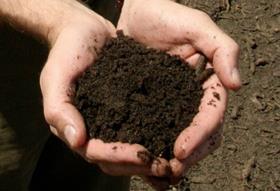
A report from the UN Food and Agriculture Organisation (FAO), compiled by 300 scientists, concludes that the worsening state of global soils is just as important as the climate crisis and the destruction of nature above ground, according to the Guardian.
As much carbon is stored in the soil as in all the plants above ground, the report stated, but crucially soils take thousands of years to form.
“There is a vast reservoir of biodiversity living in the soil that is out of sight and is generally out of mind,” said one of the report’s lead authors, Prof Richard Bardgett of the University of Manchester. “But few things matter more to humans because we rely on the soil to produce food.”
“If you’re losing the top soil through bad treatment and then erosion, then it takes thousands of years until the soil is produced again,” said Prof Nico Eisenhauer of Leipzig University, another lead author.
The scientists likened soils to the skin of the living world, essential yet thin and fragile, and highly vulnerable to intensive farming, deforestation, pollution and global warming.
According to Prof Rattan Lal, who won the 2020 World Food prize, approximately 135bn tonnes of soil has been lost from farmland since the Industrial Revolution.
“If things carry on as they are, the outlook is bleak, unquestionably,” said Bardgett. “But I think it’s not too late to introduce measures now.”
According to the scientists, protecting existing healthy soils from damage is the most important action, restoring degraded soils by producing a diverse range of plants.
“Certainly there’s hope that we can make soils healthy again,” said Eisenhauer. “I think a lot depends on what we eat. Do we need to eat these massive amounts of cheap meat, for example? Can we rely more on plant-derived calories? I think this is a massive factor.”
Eisenhauer believes that this first report on the global state of biodiversity in soils is crucial for raising awareness. “Raising awareness is a first critical step, bringing soil more into the public and political discussions,” he said. “Most of the decisions about, for example, protected areas are not based on soils.”






No comments yet